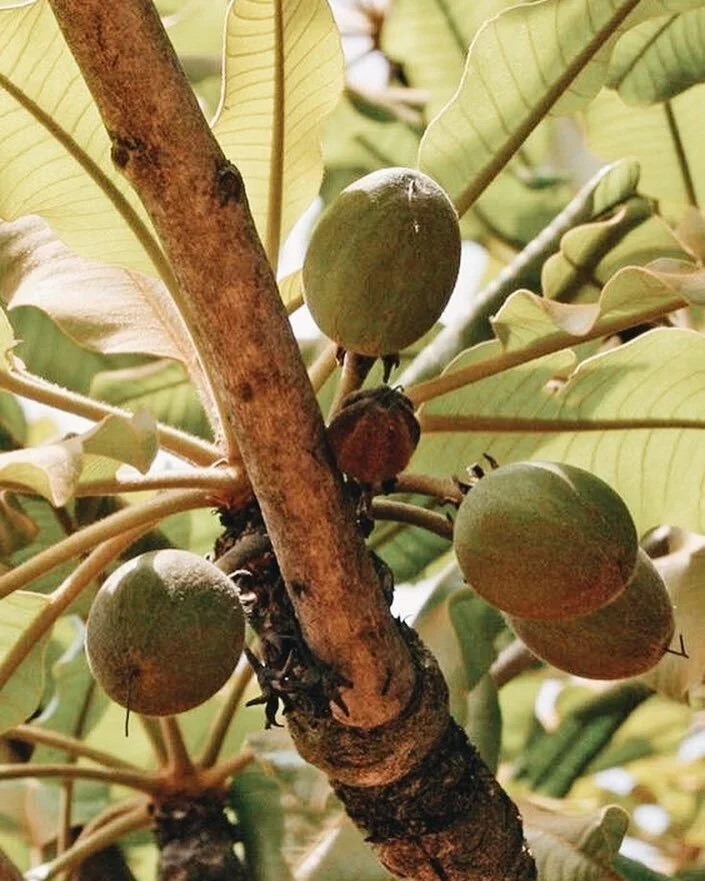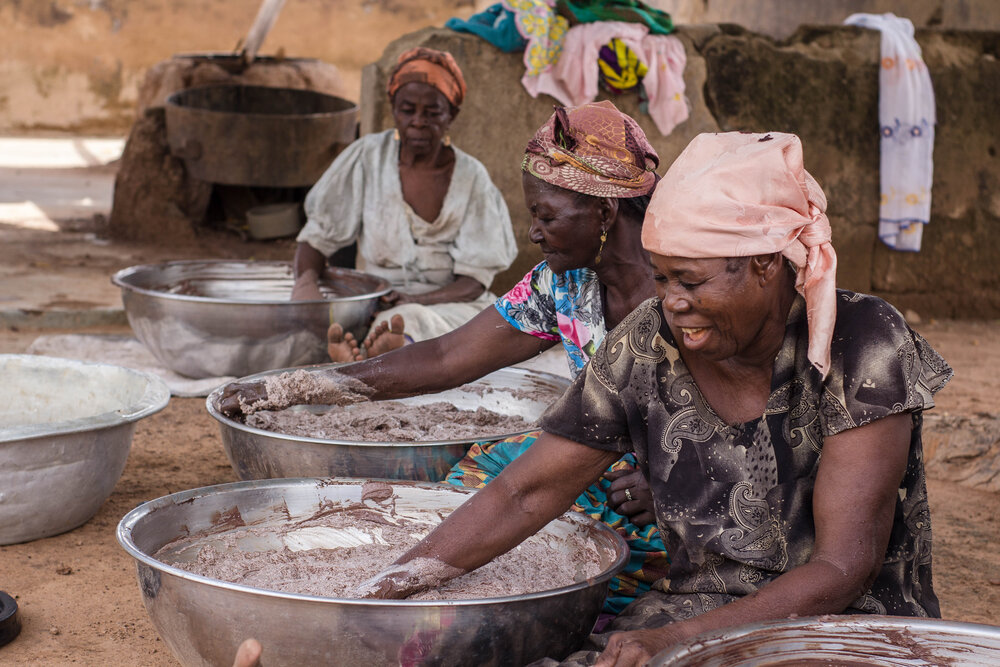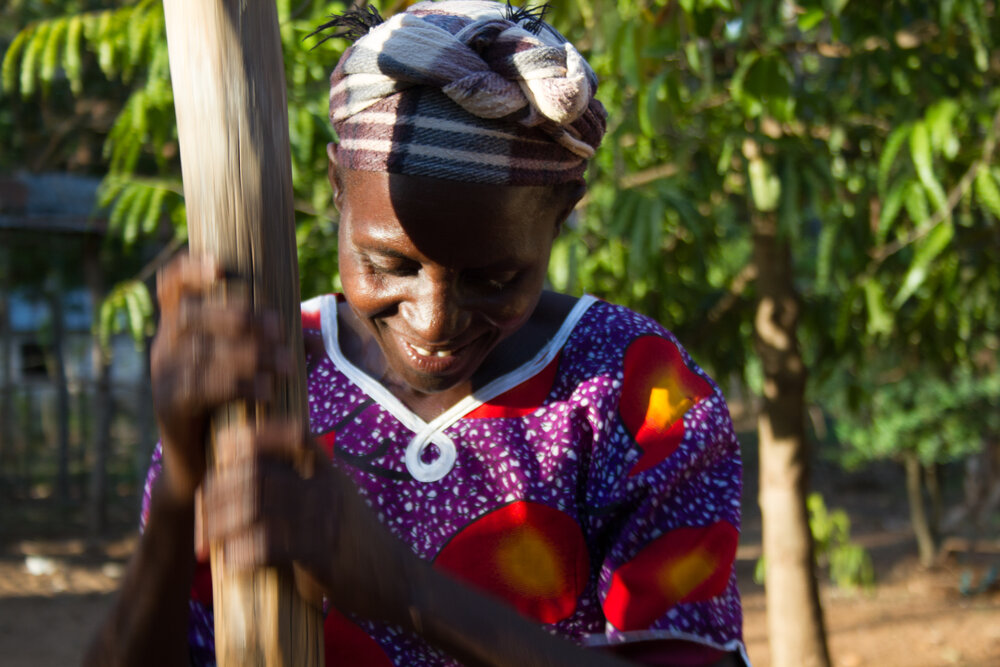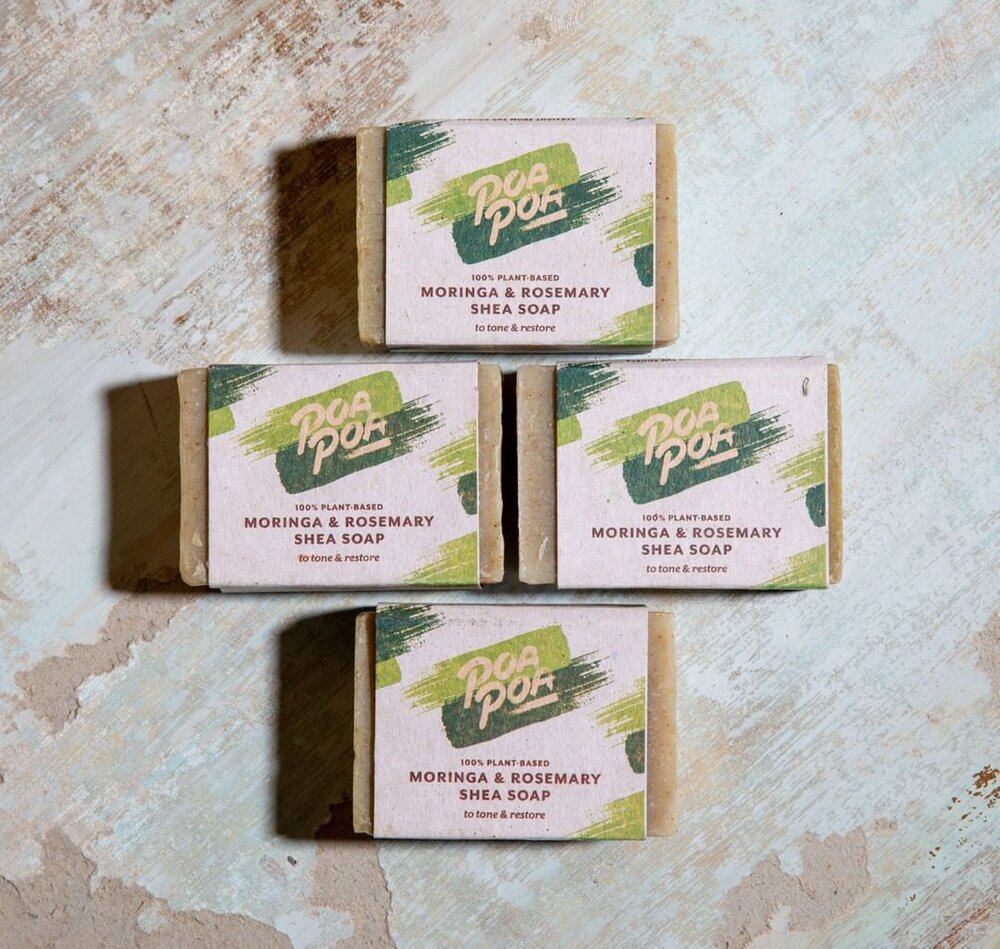Introducing Poapoa - a social enterprise that operates on the ground to provide economic opportunities to rural communities in Ghana and Kenya. Poapoa partners with small communities and producers to create ethical soaps crafted from local oils and essences.
We first met Poapoa back in 2018 when we launched The Oasis in London. Their beautiful soaps were featured in our pop-up shop as part of our mission to uncover craftsmanship from around the world. We’re excited to announce that their soaps are now available on our online marketplace.
To celebrate our collaboration with Poapoa, we spoke to founder Marco, to learn more about how fair trade business can save the world.
How would you describe Poapoa in one line?
Poapoa produces a unique range of natural soaps ethically produced in Ghana & Kenya, 100% vegan and plastic free.
Your model of working with artisans is very inspiring! Can you share more about what you do and the inspiration behind it?
The inspiration came from the anthropological research of our founder Marco in Kenya, working and living with the Giriama coconut farming community. From his research it emerged that many coconut farmers were disenfranchised and relying on several middle men to trade their products, unable to break through a vicious circle of poverty and exploitation. By partnering with a local entrepreneur Cosmas, we started our first project, processing coconuts at farm level into coconut oil, adding value to the products locally and bringing opportunities to the local community.
We scaled this model in different countries, working with local entrepreneurs and creating sustainable and transparent supply chains that benefit rural producers. We currently operate in Ghana & Kenya, while we have recently paused our operations in the Philippines.

As an organisation working to improve the lives of those in the farming industry in Ghana and Kenya, is there anything that you would like people to know?
African farmers often get the worst end of the stick while putting the most effort in growing and harvesting products. I believe what’s important to understand is that this is not just because ‘corporations are evil’ today but it’s the result of exploitative structures of production inherited from colonial times.
Delivering real, structural change is not as easy as ‘donating profits to charity’. It takes many years of dedication and investment, radically transforming supply chains, investing in local manufacturing, leapfrogging into climate smart production, developing local skills and talent to finally achieve supply chains that are inclusive and nourishing rather than extractive, like the ones we have inherited.
Have you received any feedback from people who have benefited from your project? If so, what have they told you?
Coconut farmer; “We are grateful to Poapoa for being a consistent partner, thanks to their quick and fair payments I have been able to put my kids through secondary school”
Entrepreneur partners: “Since we started working with Poapoa we have been able to access capital in the form of grant funding, better positioning our impact to the eyes of donor agencies. Poapoa has directly invested $10,000 to help us strengthen our farmers relationship and really become a trusted enterprise consistently paying farmers on time and at a fairtrade premium”
Entrepreneur partner: “Thanks to Poapoa we have been able to expand our market reach beyond Ghana and start selling in different European markets, we hope to grow with Poapoa in the long term”
 Women processing shea butter into soaps in Tamale, Ghana. Image: Poapoa
Women processing shea butter into soaps in Tamale, Ghana. Image: Poapoa
What does Poapoa hope to achieve in the long run?
Transform the perception of ‘made in Africa’, showing the world that Africa is capable of producing quality products, at scale and it’s not just a starved continent that needs donations.
 A farmer in Kenya. Image: Poapoa
A farmer in Kenya. Image: Poapoa
Complete the sentence “Social responsibility is…”
Social Responsibility is about long-lasting change.
We’re proud to partner with Poapoa and feature their ethical soaps on our online marketplace.
Discover the range of soaps here.


0 comments